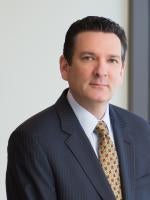Commissioner Luis A. Aguilar provided the most recent illustration of the SEC’s renewed emphasis on enforcement actions involving accounting and financial statement fraud when, on August 28, 2014, he issued a rare written dissent from the agreed-upon settlement in In the Matter of Lynn R. Blodgett and Kevin R. Kyser, CPA, File No. 3-16045 (Aug. 28, 2014). In Blodgett, the SEC charged the former chief executive officer and chief financial officer of Affiliated Computer Services, Inc. (“ACS”) with causing the company’s failure to comply with its reporting, record-keeping, and internal control obligations in violation of Sections 13(a), 13(b)(2)(A), and 13(b)(2)(B) of the Exchange Act and Rules 12b-20, 13a-1, 13a-11, 13a-13, and 13a-14 thereunder. The two senior executives collectively paid nearly $675,000 in penalties, disgorgement and prejudgment interest to settle these cease-and-desist proceedings.
According to the SEC, ACS overstated revenue by $124.5 million in fiscal year 2009 by arranging for an equipment manufacturer to redirect through ACS certain preexisting orders that the manufacturer had already received from another company. These so-called “resale transactions” created the false appearance that ACS was involved in these transactions and, in violation of generally accepted accounting principles, generated revenue that allowed ACS to meet both company and analyst growth expectations. The SEC found that the senior executives, who certified the company’s Form 10-K and Forms 10-Q during this period, “understood the origination of these ‘resale transactions’ and their impact on ACS’s reported revenue growth,” but “did not ensure that ACS adequately described their significance in ACS’s public filings and on analyst calls.” Further, the SEC found that both senior executives personally benefitted from ACS’s overstated revenues because their bonuses were tied to the company’s financial performance.
In a Dissenting Statement published concurrent with the Order, Commissioner Aguilar singled out CFO Kyser’s “egregious conduct” and characterized the settlement with him as “a wrist slap at best.” Commissioner Aguilar expressed his belief that Kyser’s actions, “at a minimum,” also violated the nonscienter-based antifraud provisions under Sections 17(a)(2) and/or (3) of the Securities Act and warranted a suspension of Kyser’s ability to appear and practice before the Commission, pursuant to Rule 102(e) of the SEC’s Rules of Practice. As Commissioner Aguilar explained:
Accountants—especially CPAs—serve as gatekeepers in our securities markets. They play an important role in maintaining investor confidence and fostering fair and efficient markets. When they serve as officers of public companies, they take on an even greater responsibility by virtue of holding a position of public trust. To this end, when these accountants engage in fraudulent misconduct, the Commission must be willing to charge fraud and must not hesitate to suspend the accountant from appearing or practicing before the Commission. This is true regardless of whether the fraudulent misconduct involvesscienter.
. . . .
I am concerned that this case is emblematic of a broader trend at the Commission where fraud charges—particularly non-scienter fraud charges—are warranted, but instead are downgraded to books and records and internal control charges. This practice often results in individuals who willingly engaged in fraudulent misconduct retaining their ability to appear and practice before the Commission.
While Commissioner Aguilar’s comments may have represented the minority position inBlodgett, this public airing of differences triggered a prompt response from within the Commission. SEC Director of Enforcement Andrew Ceresney issued a press release the following day underscoring that accounting and financial fraud cases remain a “high priority” and noting that “financial reporting cases for 2014 so far have surpassed last year’s total number of cases by 21 percent.” Director Chesney also referenced the recent increase in investigations being conducted by the Financial Reporting and Audit Task Force, which the SEC formed in July 2013.
This documented upsurge in enforcement actions and investigations is consistent with the SEC’s stated policy initiatives for 2014. SEC Chair Mary Jo White warned registrants in January that the Commission would prioritize financial fraud with a particularized focus on the actions of auditors and senior executives. In doing so, she explained, the SEC intended to convey the message “that critical accounting issues are the responsibility of all those involved in the preparation and review of financial disclosures.” Now, less than eight months later, Commissioner Aguilar has sought to further strengthen this message by imposing tougher sanctions on accountants deemed to be at the center of the misconduct. Future settlements will demonstrate to the accounting industry—and the securities profession as a whole—whether his publicized appeal prompted significant change at the Commission.




 />i
/>i

